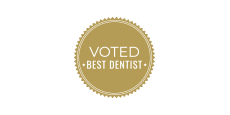Welcome to our family of smiles we care for
Find Your Espire Dental
You deserve a dental experience that's convenient and stress-free, from a caring and friendly team. That way, you can focus on what truly matters, a healthy life and a happy smile. With multiple locations in California, Colorado, Oklahoma, Wyoming, and beyond, finding our trusted dental care teams and top dentists nearby has never been easier.
Start your journey to a healthier smile today!
Our PAtients Love Us
We Provide Cosmetic & Comprehensive Dental Services

General Dentistry

Cosmetic Dentistry

Dental Exams & Cleanings

Sedation Dentistry

Emergency Care

Invisalign & Clear Aligners

Dental Implants

Dental Crowns

Veneers

Teeth Whitening

Gum Therapy

Fillings and Tooth Bonding

Wisdom Teeth Removal

Root Canals

Implant Supported Dentures

Pediatric Dentistry

TMJ Therapy

Sleep Apnea Treatment
8,000+
Five Star Reviews on Google
All around a great dentist. Nice office with coffee and drinks. Clean. Dental staff and dentist is great. Nice location to do things before and after in Erie.
This was my initial visit and I was thoroughly pleased with the professionalism. And the staff for being friendly, respectful and knowledgeable. I’m glad this office was referred to me by a colleague.
Excellent over all.
"Very personable and attentive to all needs.”
First visit and I was impressed! Highly knowledgeable staff! The Dr. Is great! All staff was caring and made sure several times during my procedure that I was doing okay! Honest and passionate about what they do!
"The service was really great. Easy to get an appointment, got it for the next day. Attention was great. Location, decoration and facilities are fantastic.”
Easily the best dentist office I've ever been to. Nice doctors, nice staff, clean space. For the first time I feel like my dentist is a partner for my dental hygiene.
"Friendly and professional staff make a trip to the dentist as pleasant as possible."
"Excellent care and the best of the best in dental health. You will not be disappointed. All staff is wonderful!”
The best dentist I’ve ever had. Great service and care.
Whitening for Charity!
Proceeds from every teeth whitening service at Espire Dental go to charity.
We’ve raised over $1.2 million to give back to supporting local non-profits and charitable organizations in our communities, and travel internationally each year as a team to provide dental care to those in need. Join us in our mission to create a better world.

Our Awards and Accomplishments





%201.png)
%201.png)
We are proud members of
%201.png)

%201.png)
%201.png)
%201.png)
%201.png)





















